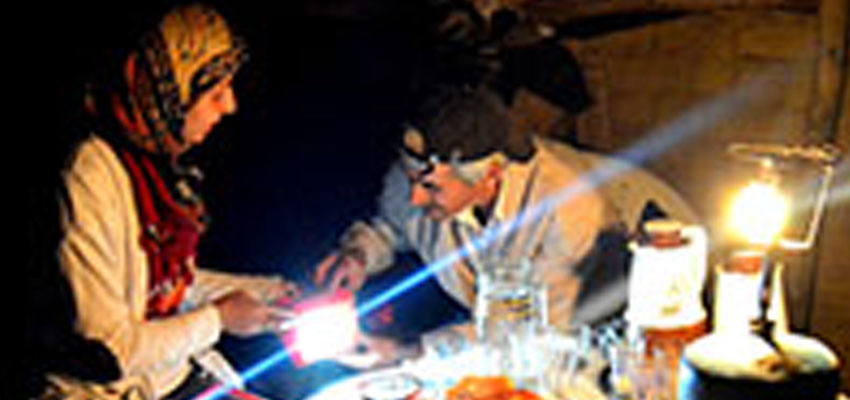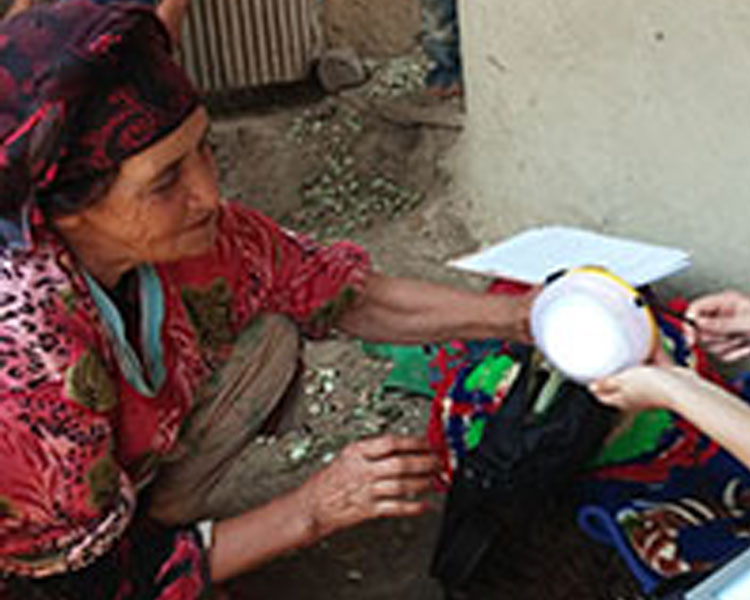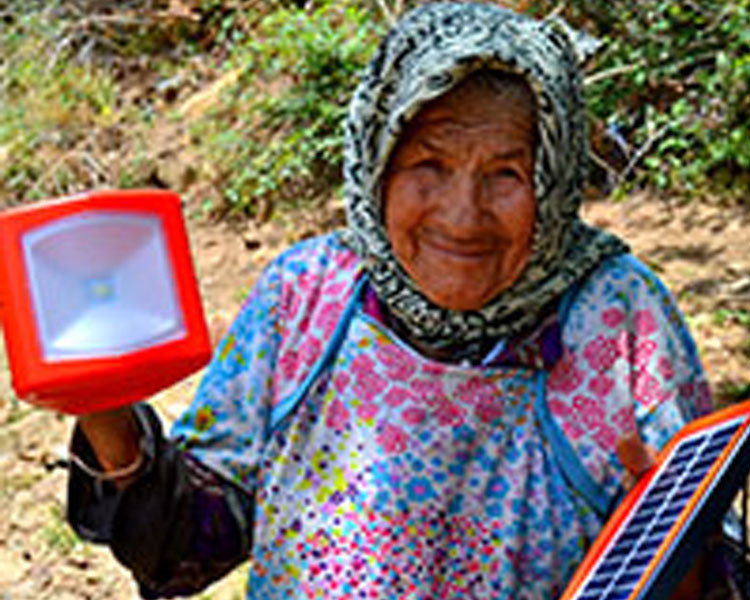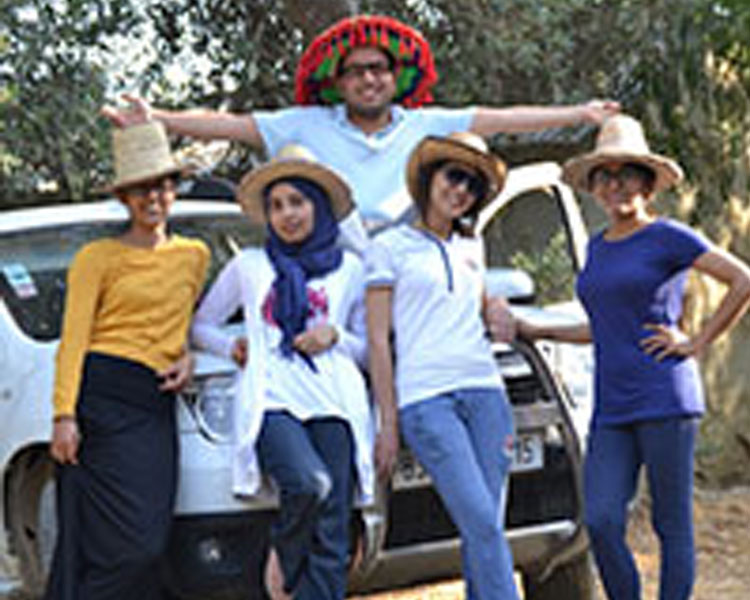
Salam from Morocco! We are in the midst of the field component of a solar light evaluation for the off-grid energy project, one of the two D-Lab Scale-Ups projects aiming to facilitate access to livelihood technologies relevant to the Moroccan context.
We have spent the majority of our time in the mountainous province of Taounate and in the port city of Kenitra.
The objective of the field evaluation is to determine the need and interest in high-quality portable lighting products across three market segments: on-grid households, off-grid households, and ambulant street vendors. The field evaluation consists of conducting pre-use interviews with about 70 on- and off-grid rural households in Taounate and then distributing solar lights to these households for a user test period of several weeks. A similar process is taking place with 30 urban street vendors in Kenitra. Most individuals in these areas have never been exposed to solar-powered lights or devices before. When the test period is complete, we will interview all of the participants a second time, to learn if and how they used the lights and to get their thoughts on the concept and the product.
Sensors have been placed on some of the lights in order to collect data relating to their usage. The sensors are recording detailed information about when and how long the light is being used, when and for how long the device is being charged, and when the light is being moved versus remaining stationary. The data collected will supplement the usage picture we get from our user interviews, allowing us to better determine the product characteristics that are most important to each market segment. At the end of the study, users will be able to keep the lights, allowing us to evaluate continued use through periodic check-ins. Lights with sensors will be swapped out for new products so that the lantern’s long-term performance won’t be impacted.
There are two different models of solar lights that we are giving to users in the field evaluation: the Sun King Pro2 and the d.light S300. Adapting methodologies developed by the Comprehensive Initiative on Technology Evaluation (CITE), we are also conducting lab testing of these products, comparing their performance to rechargeable flashlights that are currently available on the market in Morocco. Our initial results from this testing indicate that the battery life of the rechargeable flashlights currently being used is significantly worse than that of the high-quality lighting products we are introducing. This result, in combination with interviewee concerns with poor battery quality, indicates that there is likely marketable value to the new products. In addition, we are putting our measurements of each light’s illumination area together with the interview responses, allowing us to gain insight into the type of light that that is most valuable to each market segment.
Our eight weeks in the field so far have been full to the brim; we’re conducting rural household interviews in Taounate, and driving winding mountain roads to visit on- and off-grid households in various geographies. We’ve met with various levels of local authorities for project authorization, and we’re learning to navigate Kenitra city souks to locate and interview street vendors for the more urban aspect of the field evaluation. Throughout all of our activities, we are working to absorb the Moroccan context.
After conducting more than one hundred pre-use interviews, we began follow-up interviews during the first weeks of Ramadan, an intense month of fasting for Muslims. The rhythm of the entire country shifted, and it was an important time for us to include in the study, as it will allow us to observe the unique usage patterns that occur during this particular time of the year when night life is more intense.
Beyond our excellent field team, we have had the indispensable support of our local collaborators, notably from the NGO Targa-Aide (http://www.targa-aide.org), the microfinance institution Al Amana, and Ghita Benessahraoui, the talented local development project consultant who is helping us estimate the potential market size and to draw a complete map of relevant institutional stakeholders for the project.
We are now preparing for the last two weeks of follow-up interviews and instrumented solar light collection to begin August 4th. Upon conclusion of the field evaluation, we will return to Cambridge to analyze the data. Based on our analysis, we will recommend a suite of products for each user segment. We will also make preliminary recommendations on deployment strategies, which we aim to test in the next phase of the project with the collaboration our the relevant stakeholders we have identified.
Beslama!




